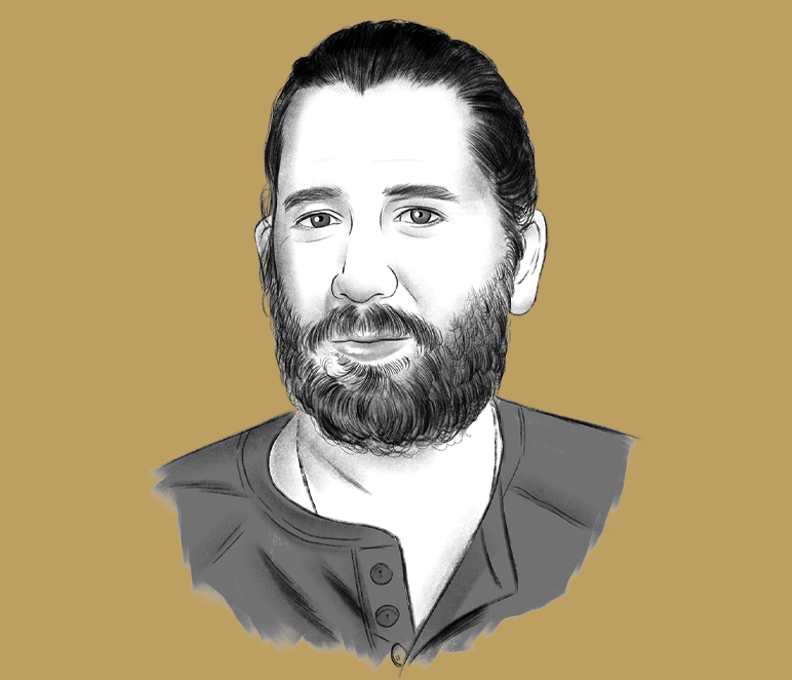Why Decision Makers Need a Real Conversation about AI
Code and Theory cofounder Dan Gardner shares how companies can learn from tech failures of the past
by Dan Gardner
November 7, 2023

Dan Gardner / Illustration: Joel Kimmel
In the dizzying world of emerging technology, each introduction—from the dot-com boom and the iPhone’s “app for that” ethos to the rise of social media—has precipitated monumental shifts. Most recently, the Web3 domain witnessed staggering investments, many of which veered off course. And now, as we stand on the cusp of the artificial intelligence (AI) era, it is clear the stakes are high. Looking back amid the wasted resources and flawed decisions, how did certain entities manage to nail it? Was it sheer luck or something more profound?
At Code and Theory, I’ve collaborated with a diverse range of companies, all with different challenges. Each involved either a threat or an opportunity centering around an emerging technology. Companies that anticipated for that change experienced differentiation. By contrast, those who hesitated often faced setbacks or even bankruptcy.
The default reaction is, too often, one of extremes. Overreact or do nothing. Both are dangerous and uninformed. These decisions are driven by fake experts and news-driven headlines that exist not to inform, but to bait clicks. Then there’s the social media megaphone that positions what everyone says as equally important—even if they have no idea what they are talking about.
But there is a method to navigate the tumultuous waters of complex and often perplexing technology. It’s rooted in perspective, open-mindedness and the acceptance of change.
Perspective is deceptively simple, yet in practice, it’s rare and demanding. It stems from a hunger for diverse inputs. It’s about fostering discourse that extends beyond your usual channels. This approach—what I call the Discipline of Discourse—calls for genuine openness and empathy. It involves challenging established notions and contesting emerging ideas.
Consider AI, for instance. The general perception is AI’s function is to diminish human tasks. The conclusion drawn is to harness the technology for staff reductions. Yet if every business leverages AI for this purpose, where does differentiation lie? As AI tools become more potent and widespread, there will be an opportunity for businesses to augment and elevate their employee base. And the businesses that retain staff and layer on AI have a chance to grow exponentially.
Let’s also consider that a mere five months ago, the buzz was all about the “prompt engineer” being the future. Prompt engineers were meant to be these wizards that could make AI perform effectively. Fast-forward to today, and that term is barely in circulation. Things are moving fast and every day, a new headline or piece of jargon is “informing” major business decisions.
Recognizing the lack of authentic conversation about AI and other pivotal topics, I cofounded ON_Discourse. We help business executives practice the Discipline of Discourse to help create new perspectives when making decisions. Personally, the more I learn about AI and position myself as an expert in AI, the more I realize that I’m a fake expert—because we all are. The future is so uncertain that all current and future ideas are yet to be proven.
Dan Gardner is cofounder of the creative agency Code and Theory, a strategic partner to Microsoft, Amazon, Google and JPMorgan Chase. He is also cofounder of ON_Discourse, a membership community for business leaders to participate in the Discipline of Discourse in order to cultivate perspectives, decision-making and meaningful relationships in business.



